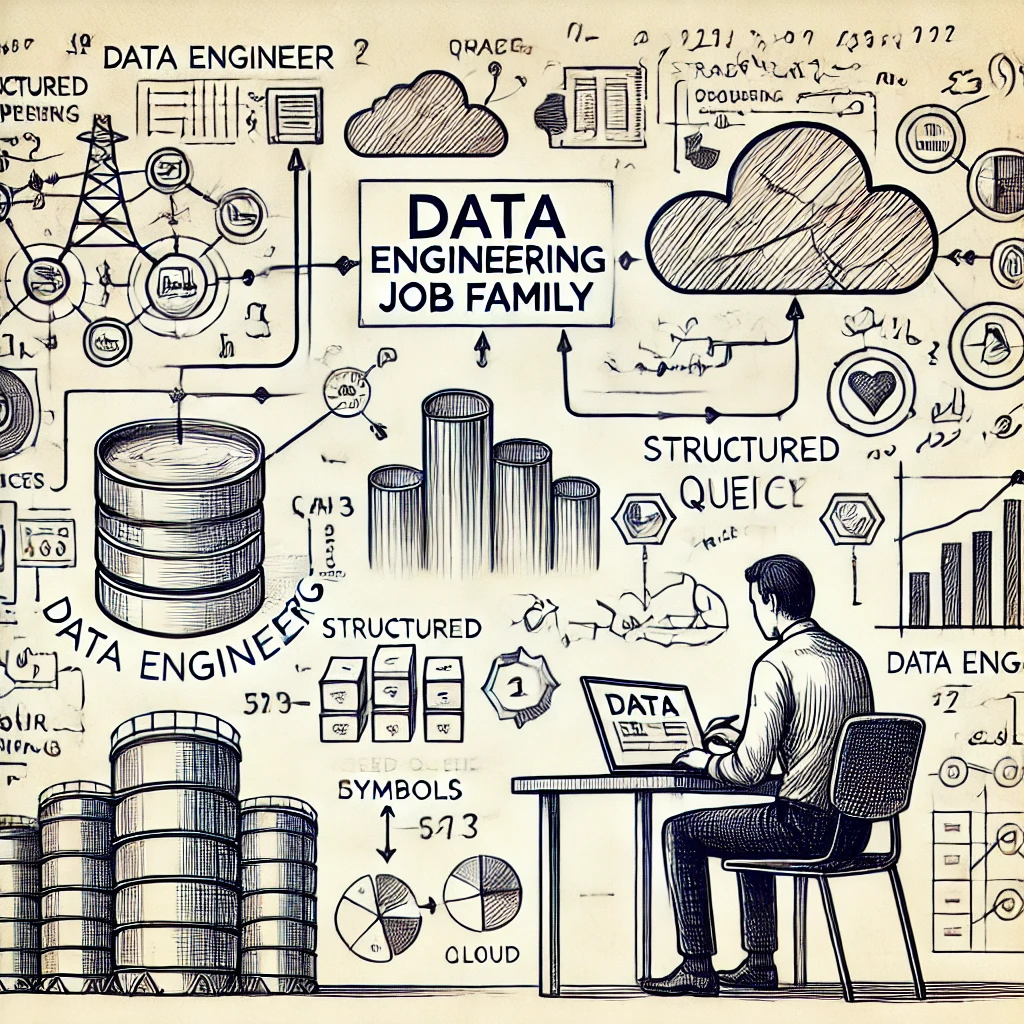Overview of the Data Engineering Job Family
The Data Engineering Job Family provides a structured career path for professionals specializing in data infrastructure, pipeline development, and large-scale data processing. Data Engineers play a crucial role in transforming raw data into structured formats, enabling analytics, AI, and decision-making. This job family ensures organizations can build scalable data teams aligned with modern technologies and industry needs. Career progression aligns with increasing levels of expertise, responsibility, and leadership, allowing for both vertical advancement and lateral specialization.
Key Roles and Career Progression
Data Engineering roles are categorized by competency levels, measured through LEAP Assessments to help employers make informed hiring and development decisions. Each role requires a combination of technical expertise, problem-solving ability, and leadership skills to support business growth.
Entry-Level Roles
- Data Engineering Intern – Gains foundational knowledge of SQL, ETL pipelines, and data formats.
- Junior Data Engineer – Assists in data flow operations, ETL jobs, and database management.
- ETL Developer – Specializes in designing and optimizing ETL workflows for structured data.
Early-Career Roles
- Data Engineer – Builds scalable data pipelines and integrates diverse data sources.
- Big Data Engineer – Works with Hadoop, Spark, and other big data frameworks.
- Data Migration Specialist – Specializes in data transfer projects, ensuring consistency and minimal downtime.
Mid-Career Roles
- Senior Data Engineer – Leads complex pipeline projects and ensures system reliability.
- Data Architect – Designs and manages end-to-end data ecosystems and governance.
- Machine Learning Data Engineer – Develops data infrastructure for AI and machine learning workflows.
Advanced Roles
- Principal Data Engineer – Establishes best practices, mentors teams, and leads innovation.
- Chief Data Engineer – Oversees data strategies at an enterprise level, aligning with business objectives.
- Enterprise Data Architect – Defines global data governance policies and ensures architectural consistency.
Adjacent Disciplines in Data Careers
While distinct from Data Engineering, the following adjacent disciplines complement and support data-driven functions within an organization:
Data Analysis & Business Intelligence (BI)
- Data Analyst – Conducts statistical analysis and develops insights using SQL, Python, and visualization tools.
- Business Intelligence Analyst – Designs BI solutions, enabling strategic decision-making through dashboards and reports.
- Advanced Data Analyst – Uses machine learning and predictive analytics for data-driven insights.
Database Administration
- SQL Developer – Writes and optimizes SQL queries to support efficient data extraction and processing.
- Database Administrator (DBA) – Manages database performance, security, and optimization strategies.
How LEAP Assessments Support Data Engineering Roles
LEAP Assessments provide a data-driven approach to evaluating competencies across all Data Engineering roles. Employers can leverage LEAP Scores to:
- Identify top talent using role-specific skill evaluations.
- Ensure competency-based hiring beyond traditional resumes.
- Develop employees by tracking skill progression and competency growth.
- Optimize workforce planning with standardized competency benchmarks.
Conclusion
The Data Engineering Job Family offers professionals a clear path for career progression, ensuring continuous growth through skill development and experience. With LEAP Assessments, hiring managers and HR professionals can make objective, competency-based decisions to build high-performing data teams.
For more information, contact LEAPScores@RewiredHQ.com.

